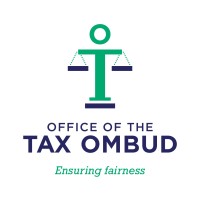
While the Office of the Tax Ombud (OTO) is committed to those seeking assistance with their tax complaints against the South African Revenue Service (SARS), Tax Ombud Yanga Mputa has reminded citizens that the entity is not in the business of helping taxpayers and businesses dodge their tax responsibilities.
Addressing the celebration of 10 years of the existence of the Tax Ombud, Mputa reiterated that the OTO champions taxpayers' rights and tax compliance.
“The office provides taxpayers and tax practitioners with a simple and impartial channel to seek a resolution for a service, procedural or administrative dispute they might have already unsuccessfully tried to resolve through SARS's complaints management channels.
“We play a unique taxpayer complaints resolution role and align with the Public Protector... The Public Protector exists to ensure administrative justice by being a check on the exercise by the government and its agencies of their authority, and on the other hand, the Tax Ombud exists to ensure administrative justice by being a check on the exercise of authority by SARS,” she said on Friday in Pretoria.
Mputa said the OTO is celebrating a decade of making a difference in the lives of taxpayers and a beacon of hope to scores who have tax complaints with the revenue collector.
Taking place under the theme: “10 Years of Making Taxpayers' Rights Matter," the Tax Ombud said until the establishment of the office, there was no independent redress channel for taxpayers, who had exhausted the normal SARS complaints mechanisms.
“The OTO was not a 'nice to have' but a prerequisite institution that has positively contributed to improving our country's tax administration system. Our intervention has saved taxpayers millions of rands, homes and businesses, to mention a few. However, we are not oblivious that we would not have achieved all this without our stakeholders,” she said.
Mputa said one of the important commitments of the Office of the Tax Ombud is the improvement of South Africa's tax administration system.
“Defending taxpayer rights is central to a tax system that follows a voluntary compliance/self-assessment tax system. In a voluntary compliance/self-assessment tax system, if taxpayers believe they are treated or may be treated arbitrarily and impulsively, they may mistrust the tax system and be less likely to comply with the law voluntarily.
“On the other hand, if taxpayers have confidence in the fairness and integrity of the tax system, they will be more likely to comply,” the Tax Ombud said.
In 2022, the Office of the Tax Ombud published the country's first-ever Compilation of Taxpayers' Rights, Entitlements and Obligations.
“This document's main aim is to highlight taxpayers' rights and obligations as contained in various laws, including the Constitution of the Republic of South Africa, 1996 and the Tax Administration Act, 2011,” Mputa said. – SAnews.gov.za


